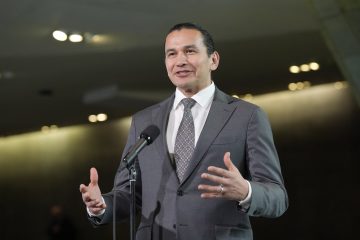Gregor Robertson: A Political Journey Through Vancouver

Introduction
Gregor Robertson served as the Mayor of Vancouver from 2008 to 2018, marking a significant period in the city’s political landscape. His tenure was characterized by ambitious sustainability initiatives and a commitment to social housing, which have become increasingly relevant in current discussions about urban living and climate change.
Early Life and Political Emergence
Born on September 18, 1964, in Vancouver, Gregor Robertson graduated from the University of Victoria with a degree in cultural studies. Before entering politics, he was a successful business entrepreneur, founding the organic juice company, Happy Planet Foods. His political career began in 2005 when he was elected as a member of the British Columbia Legislative Assembly for the New Democratic Party (NDP), representing Vancouver-Fairview.
Tenure as Mayor
In 2008, Robertson was elected to the office of Mayor of Vancouver after winning a decisive victory. Throughout his decade-long administration, he focused on sustainability and livability. One of his landmark policies was the Greenest City Action Plan, which aimed to reduce the city’s carbon footprint and promote green jobs. Under his leadership, Vancouver was recognized globally for its commitment to environmental stewardship.
Additionally, Robertson’s administration faced the city’s growing housing crisis head-on, launching various initiatives to increase the availability of affordable housing. His policies included increasing zoning for residential developments and supporting the construction of social housing projects. However, his tenure was not without controversy, as critics argued that his policies did not adequately address the issues faced by low-income residents.
Post-Mayoral Life and Legacy
After not seeking re-election in 2018, Robertson has continued to be active in community affairs and environmental advocacy. He has taken on advisory roles and remains involved in discussions focusing on sustainable urban planning. His legacy is a mixed bag; while many applaud his green initiatives, others point to the housing affordability crisis as an unresolved issue during his administration.
Conclusion
Gregor Robertson’s contribution to Vancouver’s political fabric is undeniable. His focus on sustainability and social issues mirrors broader trends in global urban governance. Looking ahead, the challenges around housing and sustainability will continue to shape future elections, emphasizing the relevance of Robertson’s policies in ongoing discussions about urban life in Vancouver. As the city evolves, the frameworks he established will likely influence how elected officials approach the pressing issues facing urban residents today.





